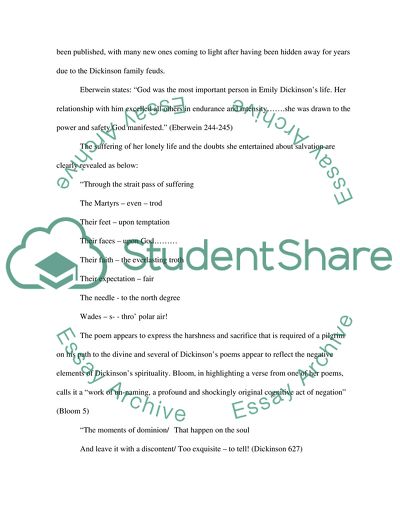Cite this document
(The Poems of Emily Dickinson Essay Example | Topics and Well Written Essays - 1250 words, n.d.)
The Poems of Emily Dickinson Essay Example | Topics and Well Written Essays - 1250 words. https://studentshare.org/biographies/1708247-emily-dickinson-research-paper
The Poems of Emily Dickinson Essay Example | Topics and Well Written Essays - 1250 words. https://studentshare.org/biographies/1708247-emily-dickinson-research-paper
(The Poems of Emily Dickinson Essay Example | Topics and Well Written Essays - 1250 Words)
The Poems of Emily Dickinson Essay Example | Topics and Well Written Essays - 1250 Words. https://studentshare.org/biographies/1708247-emily-dickinson-research-paper.
The Poems of Emily Dickinson Essay Example | Topics and Well Written Essays - 1250 Words. https://studentshare.org/biographies/1708247-emily-dickinson-research-paper.
“The Poems of Emily Dickinson Essay Example | Topics and Well Written Essays - 1250 Words”. https://studentshare.org/biographies/1708247-emily-dickinson-research-paper.


